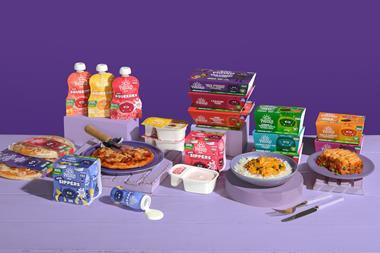![Guide to SMEs_Article image_long[3]](https://dmrqkbkq8el9i.cloudfront.net/Pictures/480xany/2/4/4/216244_guidetosmes_articleimage_long3_307021.jpg)
Covid-19 is having a profound impact on how we eat and provide food. Many food businesses have diversified their offer to cater to the new normal, while lots of new home-based food businesses have started up in kitchens across the country. While opening a new business during a pandemic can be brave, start-ups must ensure food safety fundamentals are in place.
So in the latest of our Guide for SMEs series, we asked Michael Jackson, head of regulatory compliance at the Food Standards Agency, for some tips on starting a new food and drink business safely
The Food Standards Agency understands how difficult it’s been for the foodservice sector over recent months and is keen to support new businesses that have opened under these challenging circumstances.
However, it’s important if you’re selling, cooking, storing, handling, preparing or distributing food, you know that you have a legal obligation to register your food business with the local authority or council.
Many people are unaware that registration applies to all food businesses, whether you are a café or cooking from home and selling online.
To help new food businesses open and operate safely, the FSA has designed guidance for starting a food business from home which covers what you need to know to keep the food you serve safe and get compliant.
Getting the food safety basics right takes time, but it’s essential to ensure you are compliant and keeping your customers safe. Registration is free and takes a matter of minutes online.
You can’t be refused, and once registered your local authority will decide on the type of appropriate food hygiene inspection, to assess whether your food preparation areas and procedures are suitable.
To help you get your new business up and running, here are five practical tips from the FSA’s Here to Help guide to get you on the right path:
1. Kickstart your new food business by registering with the local authority. This will be the local authority or council whose jurisdiction covers the area where your business will be based. You must do this at least 28 days prior to starting your business. If you haven’t done this yet, do it as soon as possible. If you are not sure if you should register, contact your local authority or council for guidance.
2. Food businesses must use HACCP procedures or a HACCP-based Food Safety Management System. Our Safer food, better business packs (the Safe catering pack in Northern Ireland) have been designed to help small businesses with this. They also cover ‘the four Cs’ of cleaning, cooking, chilling and cross-contamination so that you know how to embed the fundamentals of good food hygiene in your business.
3. You must provide allergen information to your customers on any of the 14 allergens specified by food law. Customers with a food allergy can become seriously ill through eating the wrong type of food and your business will be liable if they have been provided inaccurate allergen information. We have free online food allergy training to help you learn about allergen labelling and best practice.
4. Wherever food is served, it is important to demonstrate you have complied with food safety law. While a food hygiene training certificate is not compulsory, it might be useful to pursue food hygiene training to improve your knowledge. Accredited training providers are available, and your local authority will be able to advise on which course is most suitable for your needs.
5. If you are delivering food or supplying other businesses, your vehicle must comply with hygiene requirements for transporting food. You should also use appropriate food-grade packaging to keep your food safe and avoid cross-contamination. Our food safety for food delivery guidance has more information on the regulations and hygiene requirements you need to follow.
For more on the practical steps on how to start a food business from home, visit the FSA’s Here to Help guidance.
Here to Help is a campaign from the Food Standards Agency which provides easy online access to practical information and resources to support food businesses. It features tailored guidance, case studies, industry insight and webinars to help food businesses get back and stay on their feet following the challenges of Covid-19. Support will continue across the summer and will react to the changing needs of food businesses.




















No comments yet